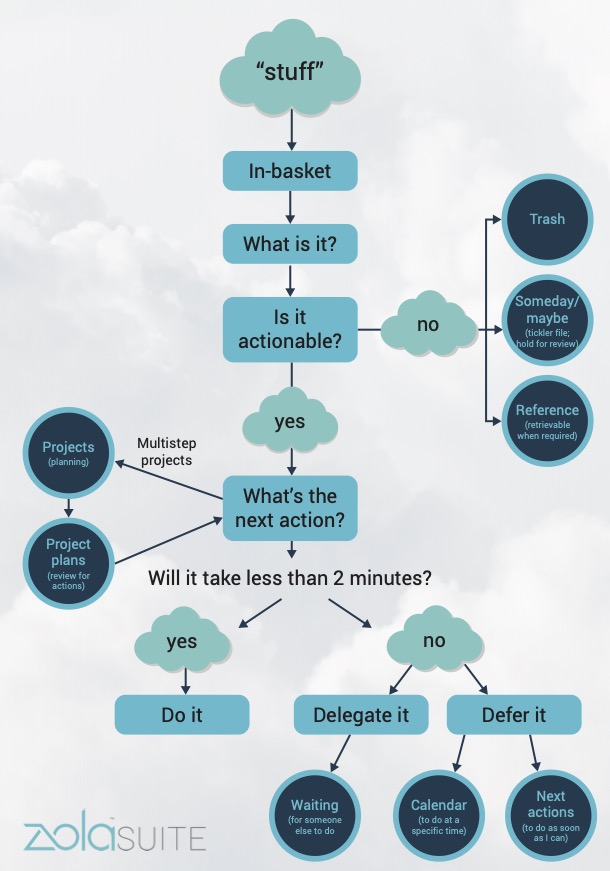These concepts are universal and can be leveraged for personal and business needs, including at a law firm- whether you’re an attorney, paralegal or firm administrator.
As a lawyer or legal professional, you are well aware of the pressure to stay productive in order to tackle the never-ending tasks that seem to grow with each passing day. David Allen discusses what it means to be productive without being in a constant state of stress in his New York Times Bestselling Book Getting Things Done. This book goes over a productivity methodology that redefines how readers can approach their life and work, but what does this mean in terms of legal professionals?
About the Book
David Allen’s believes that most stress that people experience comes from inappropriately managed commitments they make or accept. Therefore, he proposes different ways to priorities tasks to reduce stress. “Getting things done” requires two basic components: outcome (or defining what “done” means) and action (what “doing” looks like). Allen also suggests following his “Five Steps of Mastering Workflow” in order to truly process each task that comes your way and figure out when and how to go about completing it:
- Capture. Collect what has your attention.
- Clarify. Process what it means.
- Organize. Put it where it belongs.
- Reflect. Review frequently.
- Engage. Simply do.
Allen also preaches that “you must use your mind to get things off your mind” which, despite sounding paradoxical, actually makes sense in the context of the book. By using your mind to properly categorize your tasks based on his workflow chart, then you can effectively push aside whatever isn’t a priority and focus only on what need your immediate attention.

Allen’s methodology challenges readers to considers two things when processing an item on your to-do list: (1) “What is it?” and (2) “Is it actionable?” If it is not actionable, there are three possibilities for this task:
- Trash. It’s no longer needed.
- Incubate. No action is needed now, but something might need to be done later.
- Reference. The item is potentially useful information that might be needed for something later.
If it is actionable, you have alternate three options for the task:
- Do it. If an action will take less than two minutes, it should be done at the moment it is defined.
- Delegate it. If the action will take longer than two minutes, ask yourself, “Am I the right person to do this?” If the answer is no, delegate it to the appropriate entity.
- Defer it. If the action will take longer than two minutes, and you are the right person to do it, you will have to defer acting on it until later and track it on one or more “Next Actions” lists.
“Getting Things Done” in Your Law Firm
These concepts are universal and can be leveraged for personal and business needs, including at a law firm- whether you’re an attorney, paralegal or firm administrator. CARET Legal’s task management features are inspired by the principles of Getting Things Done and optimized for the type of tasks performed at a legal practice. For example, installing an LPM in your law firm can help you defer and delegate tasks based on matter and attorney which can lead to greater productivity in the firm. Additionally, by automating certain processes, you can place your attention and focus on more pressing matters.
Are you ready to get things done in your firm? Sign up for a free trial with CARET Legal to see how you can manage every action in every case.
